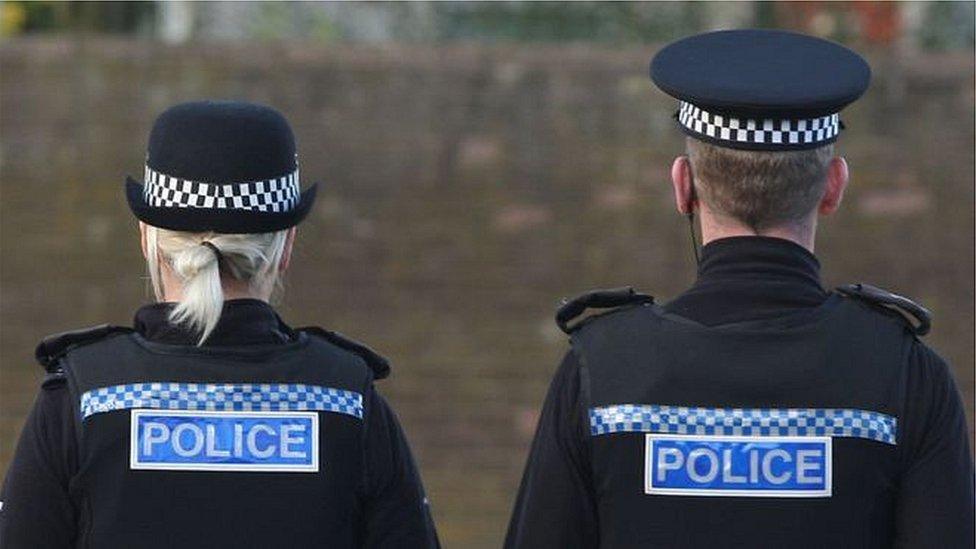Gender pay gap: Leicestershire chief constable defends figures
- Published
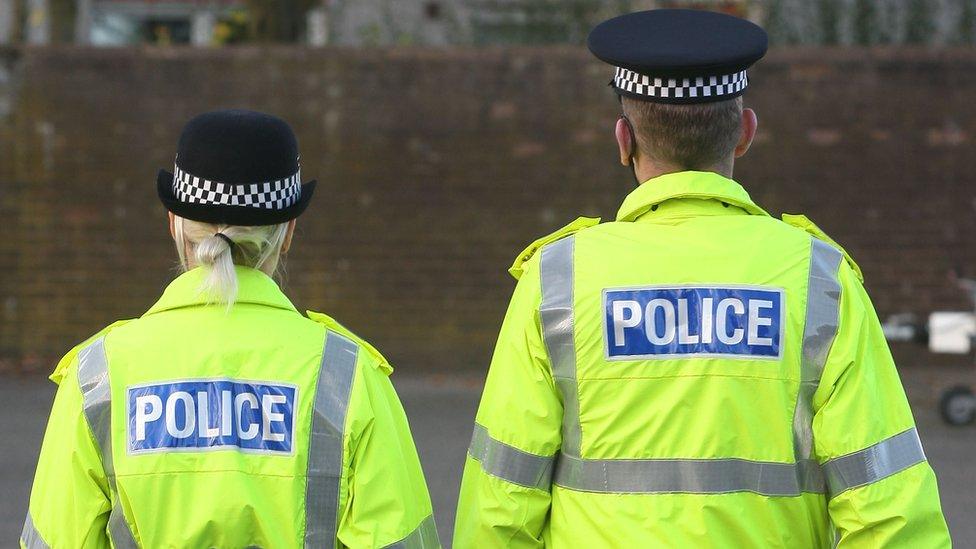
Figures show women at Leicestershire Police earn 68p for every £1 a man does
The chief constable of the police force with the widest gender pay gap has said one reason for the gap was its recent recruitment of several female staff.
Leicestershire Police has been found to have the largest difference between the median male and female salary of any force in England or Wales - 31.5%.
Simon Cole said his force had "more women on the lower pay grades because they have just joined".
Mr Cole said everybody was paid the same according to role.
The figures from the gender pay gap service showed women at the force earned 68p for every £1 a man earned.
Other forces named as having large gender pay gaps included Lancashire Police, which had a 31.4% gap, while Durham Police's was 31%.
Last year, Derbyshire Police had the largest gap with a 28.8% difference.
It comes after analysis by the BBC found fewer than half the UK's biggest employers had succeeded in narrowing their gender pay gap.
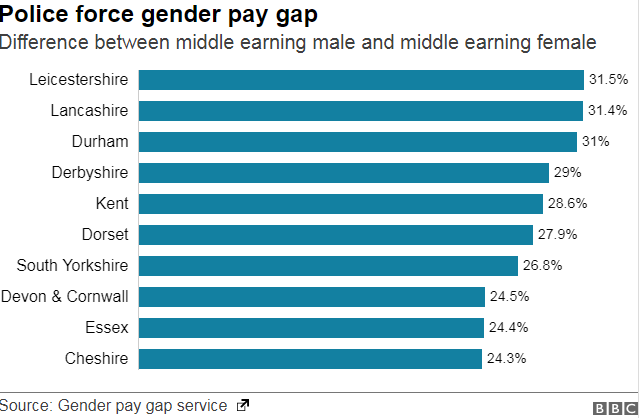
Reacting to the figures, Mr Cole told BBC Radio Leicester: "I just don't recognise it as described like that.
"Everybody here gets paid the same according to role, there is no difference in that between the sexes. However, there's a reality to how our workforce is made up."
He said the force recruited an equal number of female and male officers.
"We have lots of people joining the organisation, and, compared to the past, more of them are female," he said. "And obviously... when you join you get paid less."
He also said the force's civilian staff, who often earned less than officers, included more women than men.
"We have fewer officers who are female, who in general get paid more than staff, [and] more of our staff are female than male, so this kind of 68p in £1 stuff just doesn't hold water with me at all - it's about the demographics of our organisation."
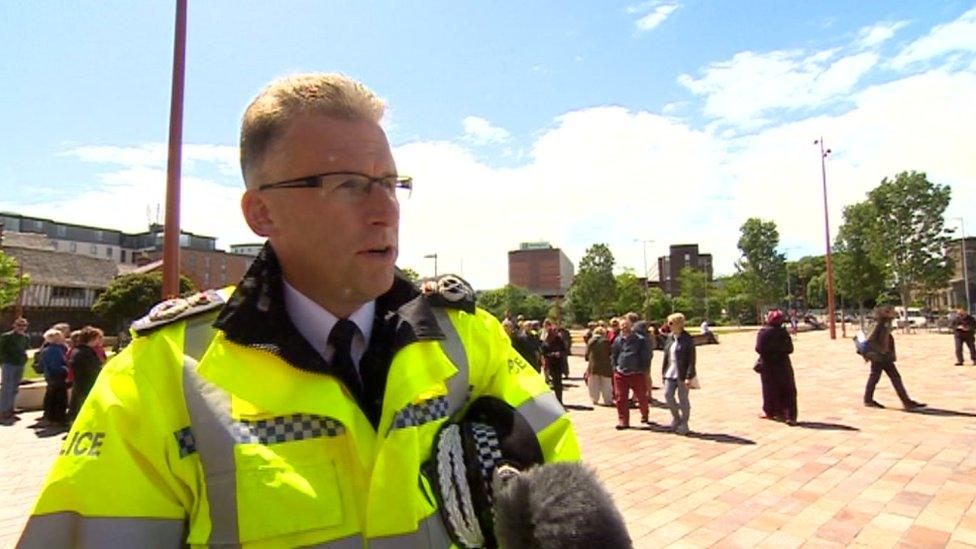
Chief constable Simon Cole said the force has more women on the lower pay grades as they have just joined
Mr Cole said the force had recruited twice as many police officers as in the previous year, meaning it had more women on the lower pay grades because they had just joined.
He said last year 70% of new staff recruited were female.
Dave Stokes, chairman of Leicestershire Police Federation, said the gender pay gap was a complicated subject.
"When you go through the figures, there is a really good explanation that explains that this is not linked to equality," he said.

The gender pay gap

The gender pay gap is not the same as equal pay, which is the right for men and women to be paid the same for the same, or equivalent, work or work of equal value
The gender pay gap is worked out by lining up all the male employees in order of salary, doing the same for the women, and comparing the two in the middle
A widening gender pay gap may actually signify progress as recruiting more females at entry level will cause the gap to widen before they move up the ranks
The median pay gap among all UK companies that have reported is 9.7%
This is the second year companies have had to report gender pay gap figures

Lancashire Police's assistant chief officer Jon Martin said: "We believe that striving for inclusion, particularly in our recruitment work, is one of the reasons why the gap has widened.
"We've recruited more women - as well as other under-represented groups - but as new starters, so they are on the lower salaries."
Derbyshire Police now has the fourth-widest median gender pay gap in the country, down from being the highest last year.
Rachel Swann, deputy chief constable, said: "We do have a gender pay gap, caused largely by the over-representation of men in senior positions and in periods of longer service.
"We are already hosting a number of initiatives aimed at promoting gender equality, and will continue to design fairness into every recruitment and promotion process."

Follow BBC East Midlands on Facebook, external, on Twitter, external, or on Instagram, external. Send your story ideas to eastmidsnews@bbc.co.uk, external.
- Published5 April 2019
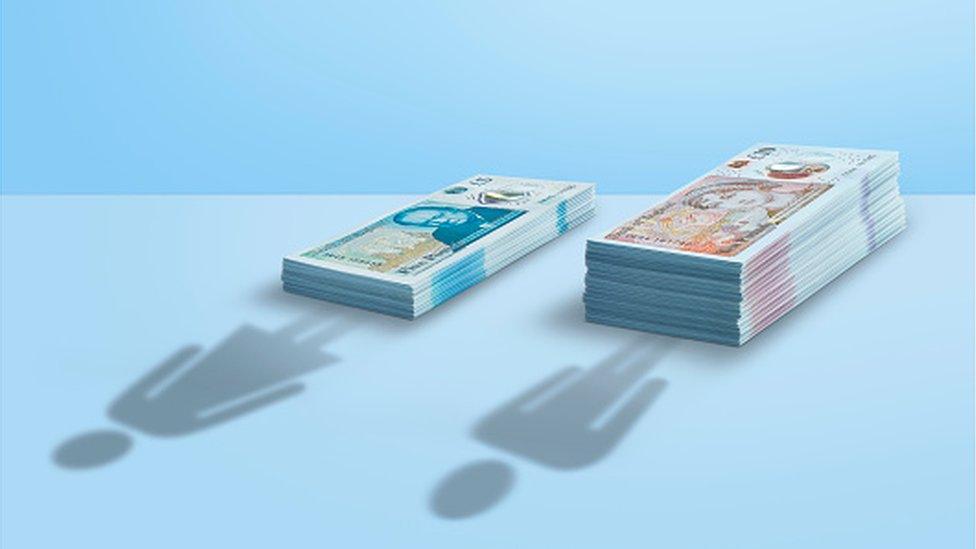
- Published5 April 2023

- Published5 April 2018

- Published3 April 2018
